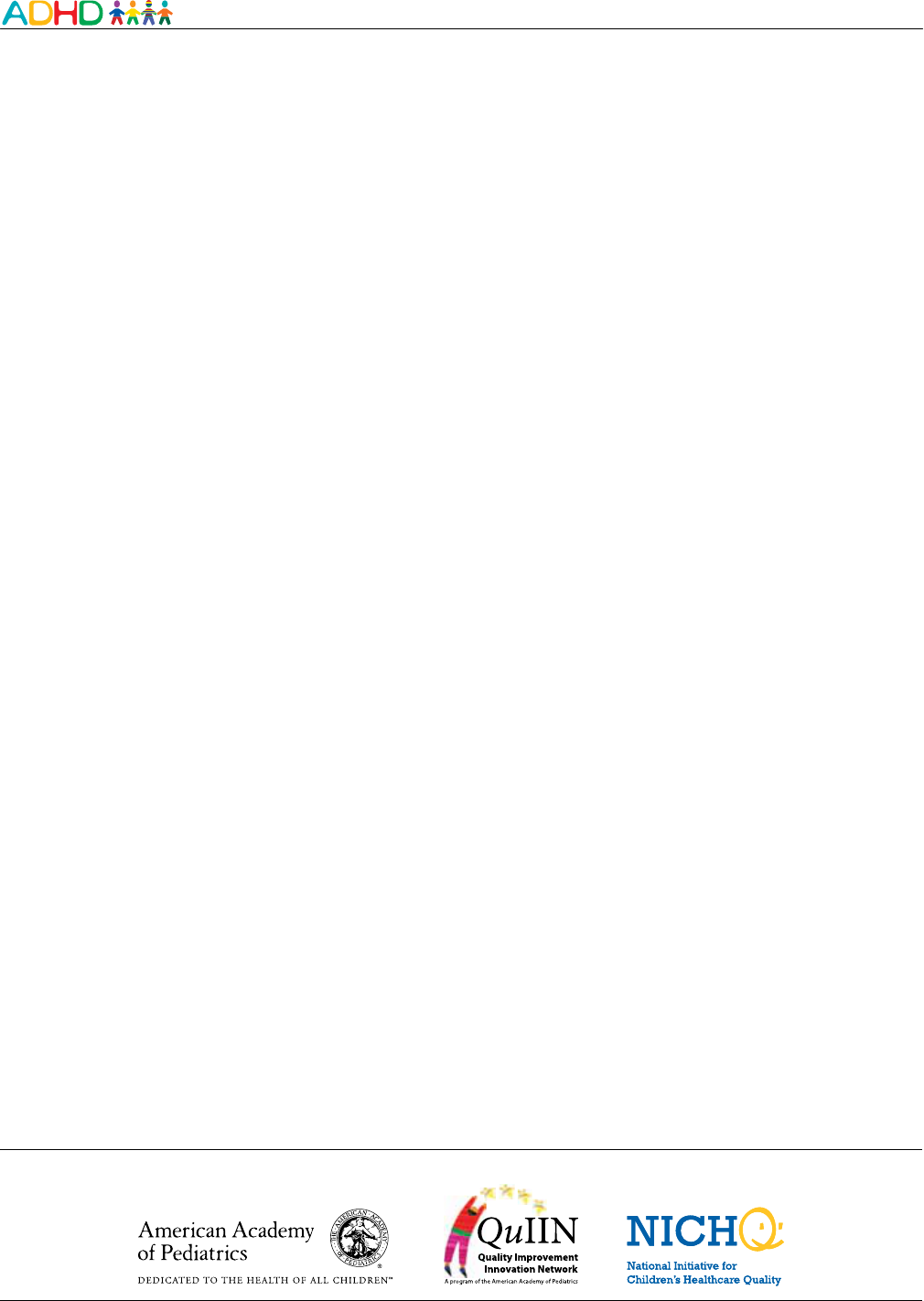
CARING FOR CHILDREN WITH ADHD: A RESOURCE TOOLKIT FOR CLINICIANS, 2ND EDITION
TREATMENT AND MEDICATION Page 1 of 1
The recommendations in this publication do not indicate an exclusive course of treatment or serve as a standard of medical care. Variations, taking into account individual circumstances, may be appropriate. Original document included as part of Caring for Children With ADHD: A Resource
Toolkit for Clinicians, 2nd Edition. Copyright © 2012 American Academy of Pediatrics. All Rights Reserved. The American Academy of Pediatrics does not review or endorse any modifications made to this document and in no event shall the AAP be liable for any such changes.
Behavior Modification Treatment for Children
With ADHD
Children with attention-deficit/hyperactivity disorder (ADHD) often
have problems at school and difficulties with behavior at home.
Behavior modification is effective at improving a child’s academic
performance and family relationships. Most experts recommend
that a behavior modification program be a part of the treatment
plan for most children with ADHD. There is no evidence that other
psychological treatments, including cognitive behavioral therapy,
family therapy, or conventional talk therapy, are effective for ADHD.
What Is Behavior Modification?
Behavior modification is the use of positive reinforcement
or rewards and mild punishment to shape behavior. Behavior
modification targets the ABCs, modifying the antecedents
(triggers), behaviors (target behaviors that cause problems),
and consequences (responses). Adults are trained to identify
problematic target behaviors, describe them in clear and simple
terms, identify the setting in which they occur, and use strategies to
decrease their frequency. These strategies can include preventive
strategies (modifying triggers), reactive or consequence-based
strategies (using rewards or punishment), or teaching the child
alternate behaviors to achieve his or her goal.
Home-Based Behavior
Treatments/Parent Training
Parent training programs use a therapist to teach parents behavior
modification techniques. Instruction usually occurs over 6 to 12
weeks, allowing parents to build skills over time. Individual and
group training are equally effective, with the choice depending on
family preference, availability, and cost. Parent training is especially
helpful for parents of preschool and elementary school-aged
children.
School-Based Treatments
School-based behavioral modifications are similar to home-based
treatments, but the interventions are made by teachers, peers,
parents, or the students themselves.
The Role of Combined
Treatment
Stimulant medication decreases ADHD symptoms, but this does
not always translate into improvements in academic achievement
and peer relationships. By combining medication and behavior
treatments, a lower “dosage” of each intervention can be effective.
Combined treatment reduces symptoms, improves function, causes
fewer side effects, and yields greater satisfaction than either
treatment by itself.
Adapted from Wolraich ML, DuPaul GJ. ADHD Diagnosis & Management: A Practical Guide for the Clinic & the Classroom. Baltimore, MD: Brookes Publishing Co; 2010
